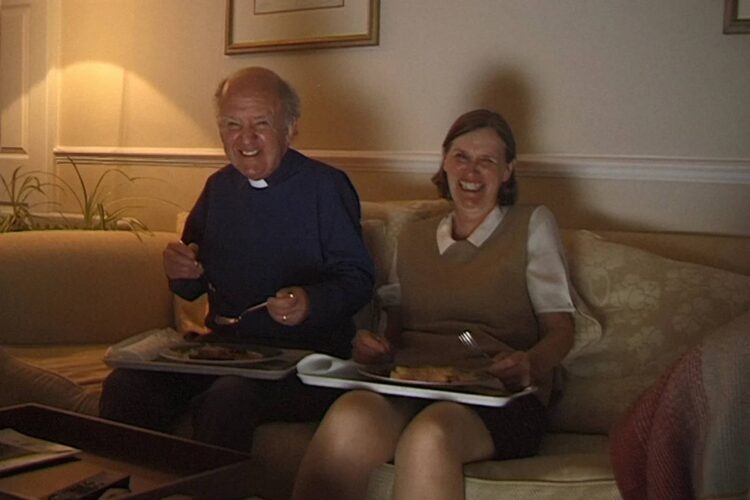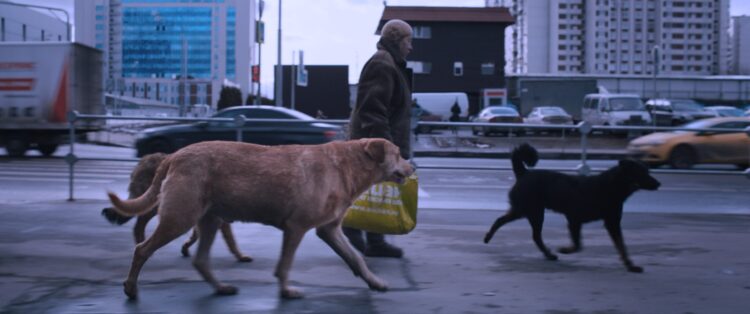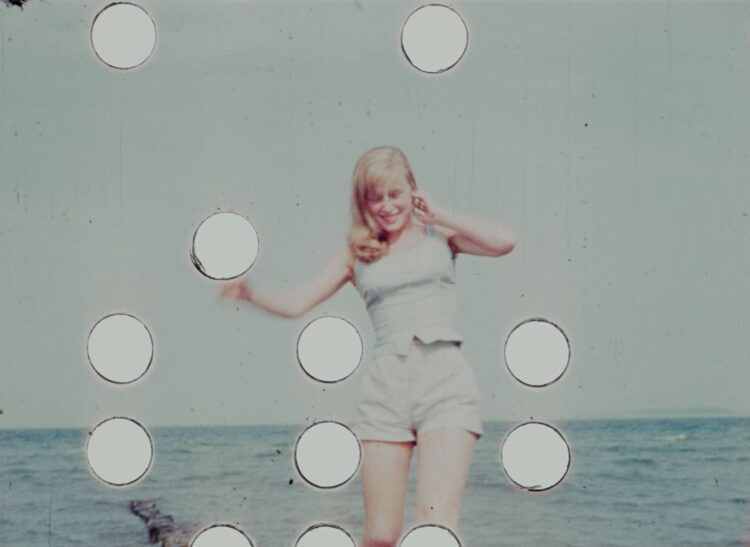

Indiewire having encouraged us to reminisce about the 2000s through its recent Best of the Decade list, there’s the reminder of one key thread defining that era: the prominence of digital video and the prescient idea that it would alter filmmaking on all budget levels going forward. Still, films shot on standard-definition DV, often with the tape format MiniDV, had one of the more inimitable aesthetics of this period; analogous to the revival of 4-track home recording in independent music, these works––from Dogme 95’s first wave to Jackass: The Movie––were tactile, immediate, and bathed in visual glitches, its grain artfully tarnishing the images rather than providing the implacable soul or character of the photochemical kind.
Across the pond, British independent filmmaking was never so wilfully art-damaged: the Y2K era was a commercially lucrative time, defined in the memory by fluffy period dramas and comedies, post-Trainspotting crime flicks, and a directorial impersonality that contemporary critics couldn’t forgive. So an immediate appeal of Richard Hunter’s Locarno-premiering dark comedy Foul Evil Deeds is its willingness to go ankle-deep in the gunge, reviving MiniDV as a knowingly outmoded format to rediscover its narrow color palette and dynamic range towards light. For the grim content of Hunter’s screenplay, the medium is the message.
Such singularity against the current UK-indie landscape is also bound up in its financing; there are no logos of public backers such as the BFI, or other vanity plates, because this is so far from what the former are currently interested in making. Hunter provides us unremarkable people on mundane days in London’s less-photogenic parts, who you wouldn’t want to interact with or share public space with, but don’t seem especially offensive; then, with the filmmaker’s well-honed sense of pacing, they disgrace themselves in a sudden, regrettable decision.
Making his feature debut after impressing in the domestic industry with shorts and advertising spots, Hunter also takes the wise route that has eluded a surprisingly large number of recent anthology films: interspersing and interlacing his short stories rather than offering one after the other, so that the film doesn’t come to a “dead stop” several times throughout. We’re patiently introduced to an office janitor and toilet cleaner (Alexander Perkins) who knows exactly how shit his job is; an Anglican vicar (James Benson, wearing a collar but not denoting Catholicism) and his wife (Tracy Margate) faced with numerous unholy irritations in their sleepy suburban home, from an invasion of maggots to a stray cat with whose mortality they decide to “play god”; and a Chinese immigrant dry-cleaning worker (Song-Hung Chang) who commits an act of misconduct with a young colleague, although from what we see of their exchanges, we could almost be sympathetic to his mistake.
In a mode not far from Roy Andersson (who feels more fashionable with cinephiles now than when his most famous films were first released in the 00s) there are other sorry individuals who get maybe a scene or two to themselves, but whose particular physiognomy or unintended comic timing makes an impression. And Hunter achieves another coup of tone by cutting to black between most of the vignettes––less an elegant cine-punctuation mark, as in Jarmusch’s black-and-white films, more the outcome when you yank a plug from the back of a monitor screen.
More than a mere exercise in style, Foul Evil Deeds is a laboratory of assembling and breaking down form. If the prescriptions and notations on human behavior are obvious, our attention doesn’t falter over 110 minutes––a roomy runtime to allow yourself when self-producing, as Hunter has done––especially for UK viewers and Anglophiles alike, watching our national character belatedly having a more vivid, striking cinematic close-up.
Foul Evil Deeds premiered at the Locarno Film Festival.
The post Locarno Review: Foul Evil Deeds Is a Very British Anthology of Wrongdoing first appeared on The Film Stage.



